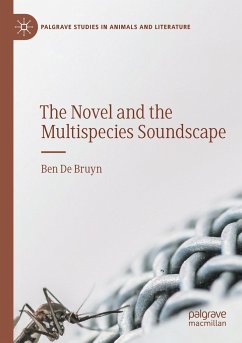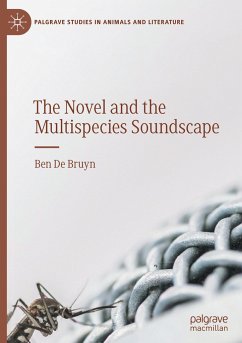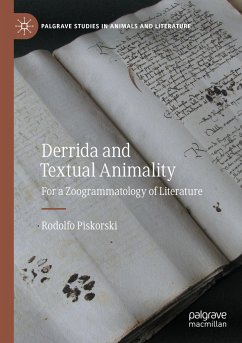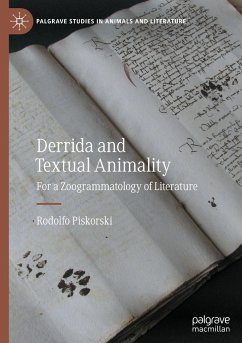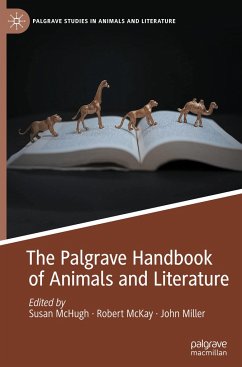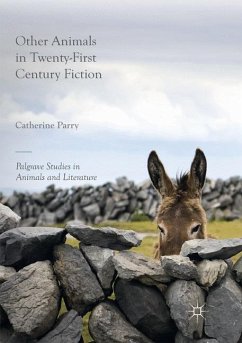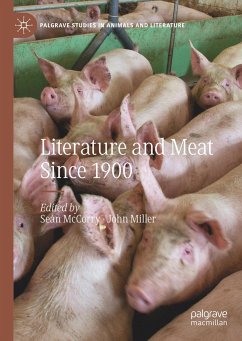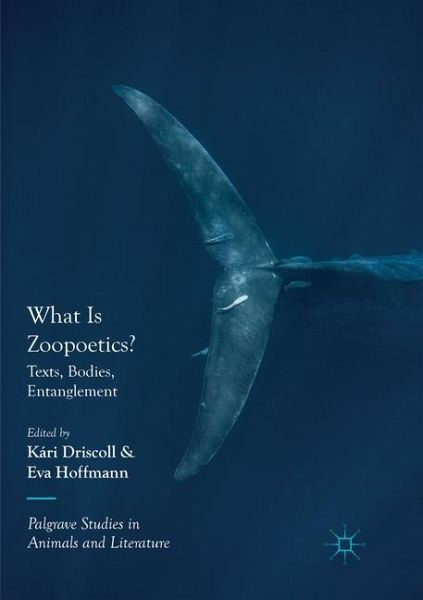
What Is Zoopoetics?
Texts, Bodies, Entanglement
Herausgegeben: Driscoll, Kári; Hoffmann, Eva
Versandkostenfrei!
Versandfertig in 6-10 Tagen
106,99 €
inkl. MwSt.

PAYBACK Punkte
53 °P sammeln!
This book brings together essays dealing with the question of zoopoetics both as an object of study-i.e. texts from various traditions and periods that reflect, explicitly or implicitly, on the relationship between animality, language and representation-and as a methodological problem for animal studies, and, indeed, for literary studies more generally. What can literary animal studies tell us about literature that conventional literary studies might be blind to? How can literary studies resist the tendency to press animals into symbolic service as metaphors and allegories for the human whilst...
This book brings together essays dealing with the question of zoopoetics both as an object of study-i.e. texts from various traditions and periods that reflect, explicitly or implicitly, on the relationship between animality, language and representation-and as a methodological problem for animal studies, and, indeed, for literary studies more generally. What can literary animal studies tell us about literature that conventional literary studies might be blind to? How can literary studies resist the tendency to press animals into symbolic service as metaphors and allegories for the human whilst also avoiding a naïve literalism with respect to the literary animal? The volume is divided into three sections: "Texts," which focuses on the linguistic and metaphorical dimensions of zoopoetics; "Bodies," which is primarily concerned with mimesis and questions of embodiment, performance, and lived experience; and "Entanglement," which focuses on interspecies encounters and the complexinterplay between word and world that emerges from them. The volume will appeal to scholars and students in the fields of animal studies, area studies and comparative literature, gender studies, environmental humanities, ecocriticism, and the broader field of posthumanism.



